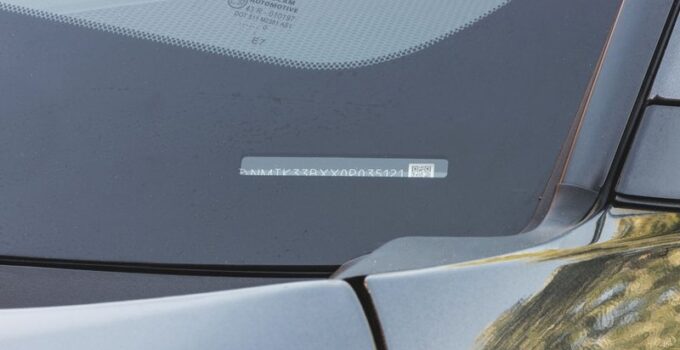Since 1954, every vehicle produced in the United States has been given a unique identifier. You may be surprised at the amount of information packed into this 17-character sequence. It lets you find out the original specs of the vehicle and any important events in its past. VIN checks are indispensable for anyone who is shopping for a second-hand car. Here is everything you need to know about these numbers.
What Is a VIN?
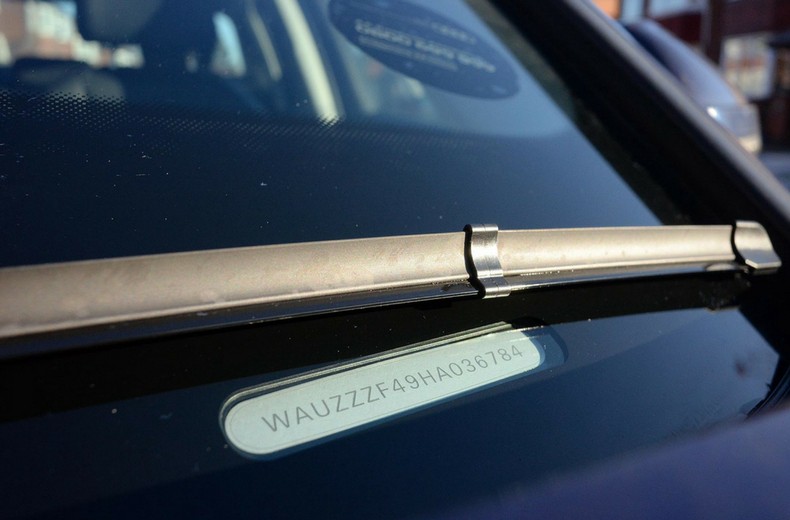
Source: bomgamer.medium.com
Every car has its special identifier that does not change throughout its lifetime. In 1981, the National Highway Traffic Safety Administration introduced the unified standard — 17 letters and numerals, each signifying a particular piece of information. This string of characters does not include three letters that are easily confused with numerals: I, O, and Q.
Using the FaxVIN service, any consumer may run extensive checks online. The first type, VIN decoding, deciphers the code to reveal the original manufacturer, country of origin, engine specs, model, etc. Here is the full list:
1 (letter/digit): the country of origin (e.g., 1, 4, or 5 for US)
2 (letter/digit): the manufacturer (e.g., A stands for Audi)
3 (digit): type or manufacturing division
4-8 (digits): model, body type, transmission, engine, and restrained system
9: the check digit (to detect a fake VINs)
10 (letter): the model year
11 (letter/digit): the manufacturing plant
12-17 (digits): production sequence
A VIN check is a thorough investigation into the past of the car. It produces an in-depth report, and you will be surprised at the sheer amount of information. Note that the identities of the previous owners are not revealed, as these details are private.
The standardized sequence is mandatory for all vehicles produced since 1981. On vintage cars, the identifiers do not follow the same pattern. Still, the VIN system implies that no two vehicles produced within the past 30 years have the same identifier.
Where to Find the VIN on a Car
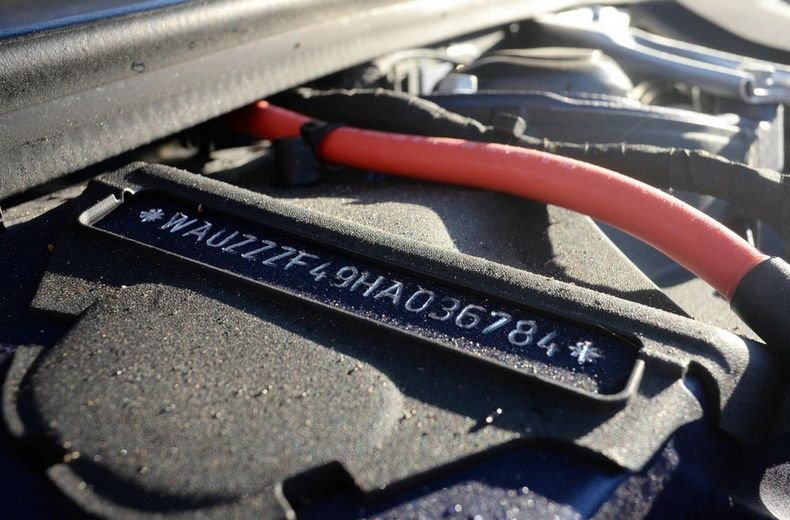
Source: rac.co.uk
The location depends on the manufacturer and the country of origin. While the numbers follow the same pattern, they may be stamped on different parts of the vehicle. Importantly, these are always non-removable elements. You are also more likely to find the number on the interior of the car, rather than its exterior. This makes sense, as the identifier may be scratched or damaged otherwise.
For vehicles produced in North America since 1981, the most common location is near the base of the windshield on the dashboard from the driver’s side. If the code is not there, check the driver’s side doorjamb just under the door latch.
On vintage cars, VINs are commonly found on an ID plate under the hood. Parts of the number may be imprinted on different components, which is known as “numbers matching”. In case of doubts, you may always contact the car manufacturer to inquire about their typical VIN placements.
What is a VIN Used for?
Checking the vehicle’s specs before buying is just one of the applications. These identifiers are used for other purposes, for example:
- sourcing of spare parts,
- assigning of traffic tickets,
- identifying the original equipment and manufacturing date for vintage cars,
- tying insurance coverage to a vehicle,
- generation of history reports, etc.
You may wonder why the authorities do not use the physical paper trail. The reason is that the VIN codes are permanent, unlike license plate numbers. They are more reliable than the physical titles. However, this does not mean that VINs may not be tampered with — find out more below.
How VINs Are Tracked
The government of the United States keeps all VIN records for all vehicles in the country. You can retrieve this data by contacting your local DMV branch or other institutions, such as vehicle history reporting companies. Law enforcement, border customs authorities, and the Insurance Institute for Highway Safety also have access to specific portions of data tied to VINs.
What If a Stranger Runs a Check Using Your VIN Number?
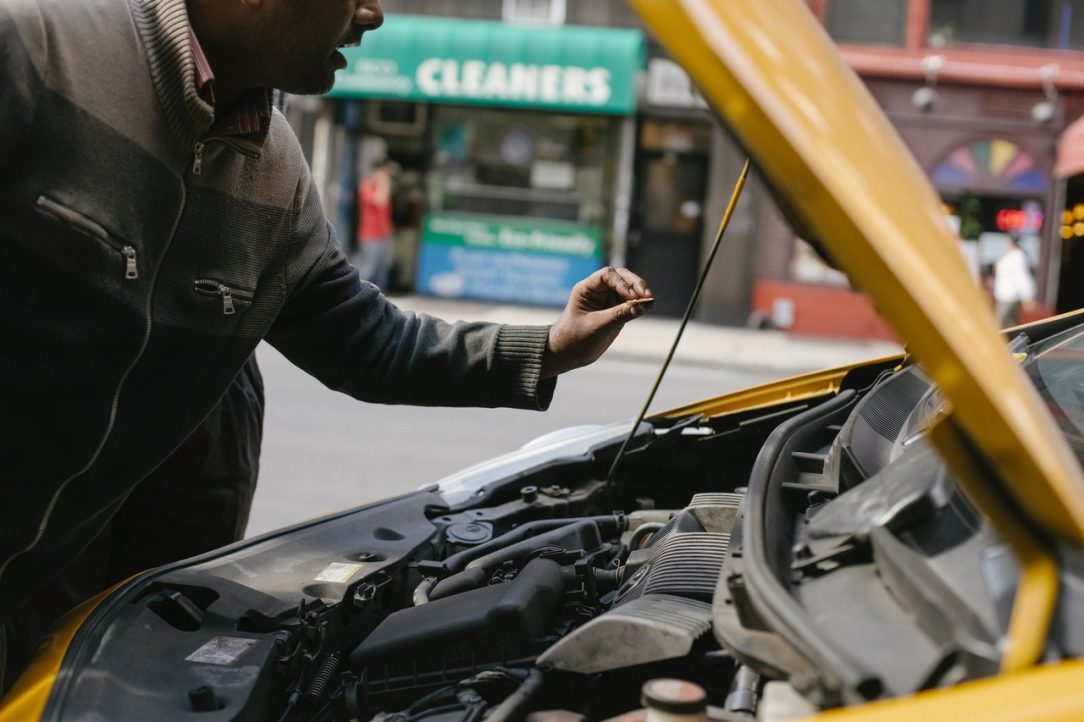
Source: pexels.com
Nothing bad can happen, as VIN checks do not expose sensitive personal information. The most thorough report will detail key events in the history of your vehicle, from accidents to odometer readings. However, even the owner lookup service will only show the number of previous owners, not their identities.
If you are selling your car, do not worry about providing your vehicle’s VIN number to potential buyers. A quick check will dispel their doubts. If you are truthful about the background of your car, this will build trust. Reliable websites do not let their clients access any sensitive information.
Can a VIN Number Be Changed?
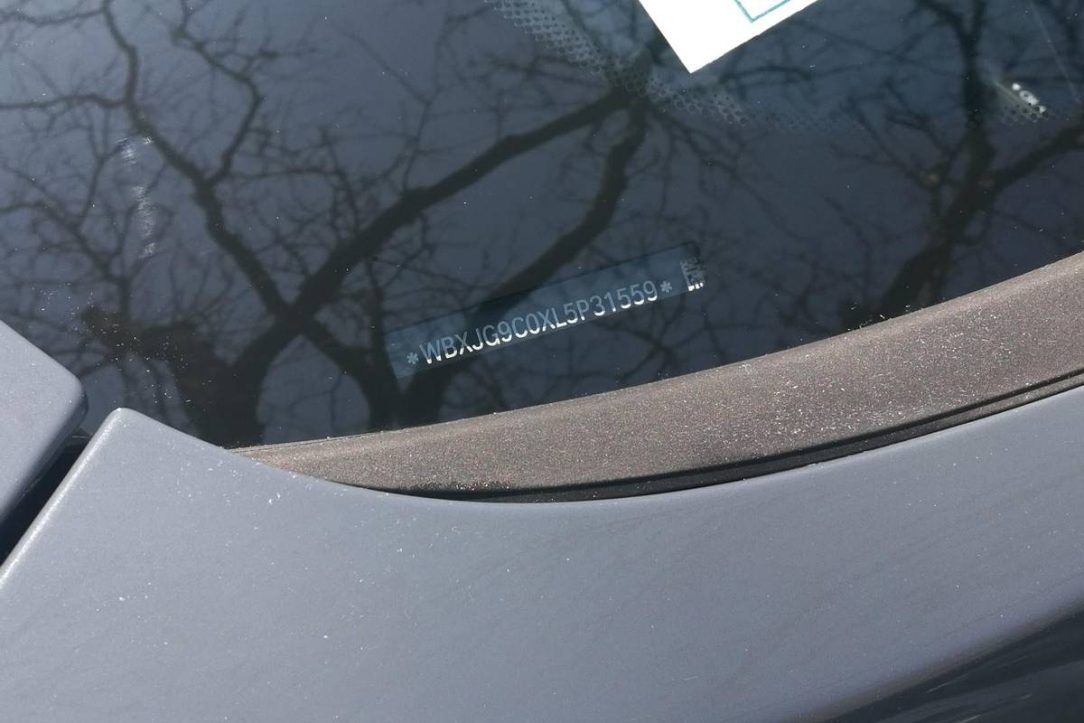
Source: cars.com
There are very few legal reasons to modify a VIN. This may be done in special circumstances involving the import of foreign vehicles or the restoration of vintage cars. Fraudsters create fake VINs and forge the paper titles for the vehicles, but an online check is enough to detect deceit.
Suppose a criminal wants to sell a car that has been crashed or stolen. They have to forge the VIN, so they can take it from a clean car of the same model, year, color, and trim level. They create a fake VIN plate to replace the original one, and a paper title matching it. They are lucky, as the unsuspecting buyer does not check the VIN.
When the new owner tries to insure the vehicle, they will discover that it has already been insured by another person. The car will be confiscated, and there will be no opportunity to recover the loss aside from suing the seller.
To Sum up
VINs are unique identifiers assigned to every vehicle in the United States. They reveal a ton of useful information, including the original specs, accident history, any damage, theft records, etc. A simple online check will provide you with a plethora of insights, from odometer readings to registration changes. These services benefit buyers and honest sellers, as they build trust and prevent fraud.

